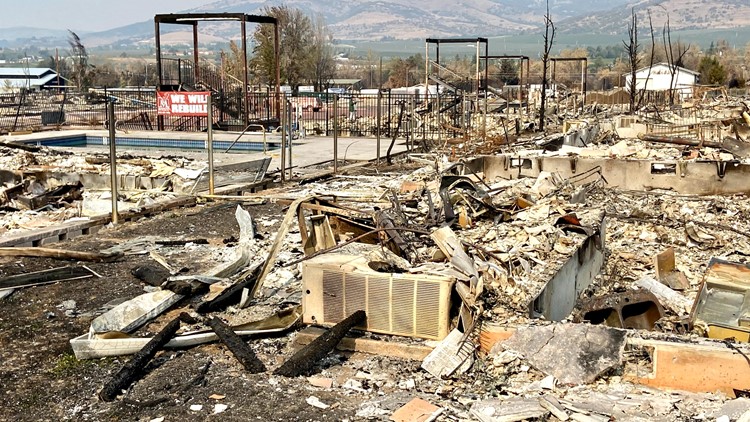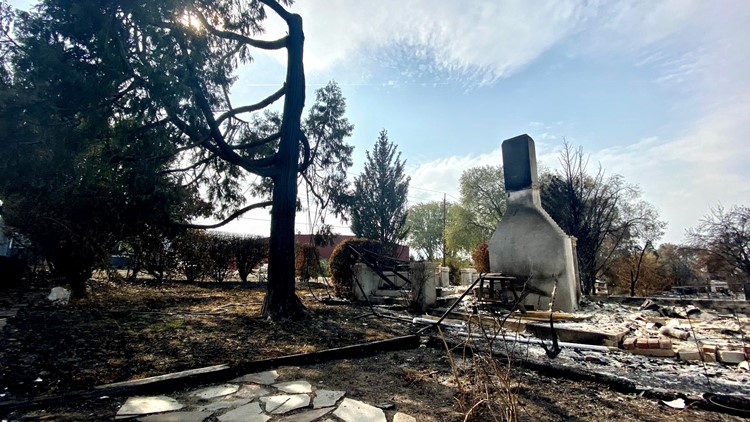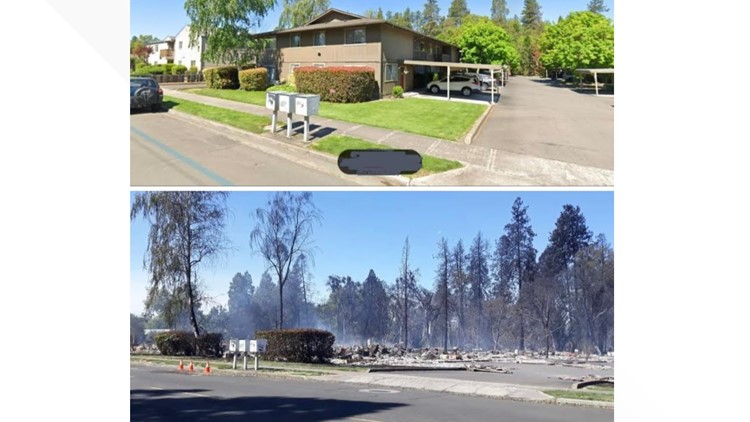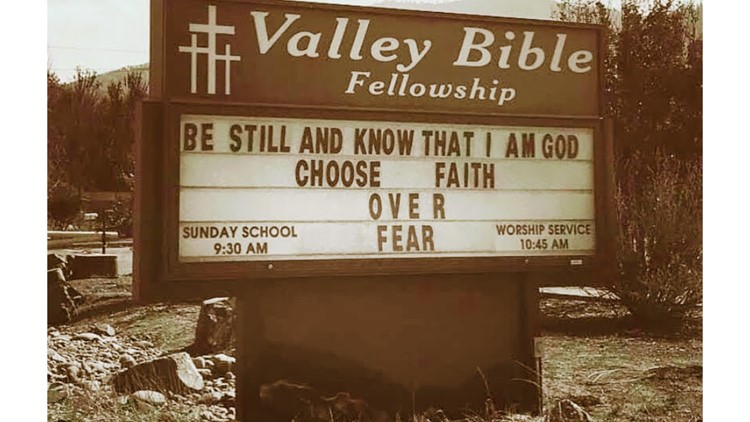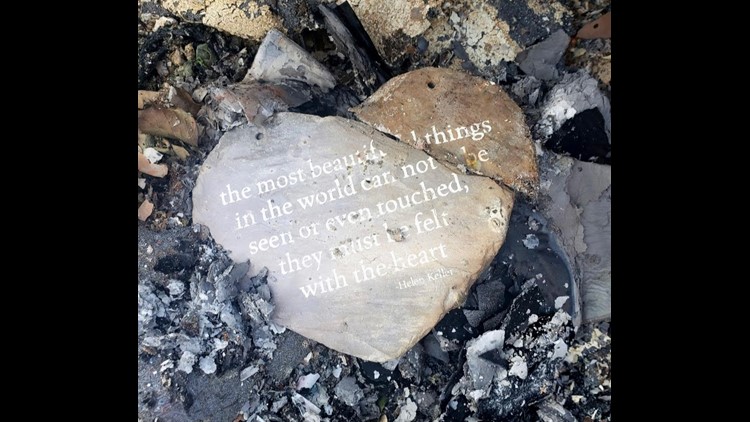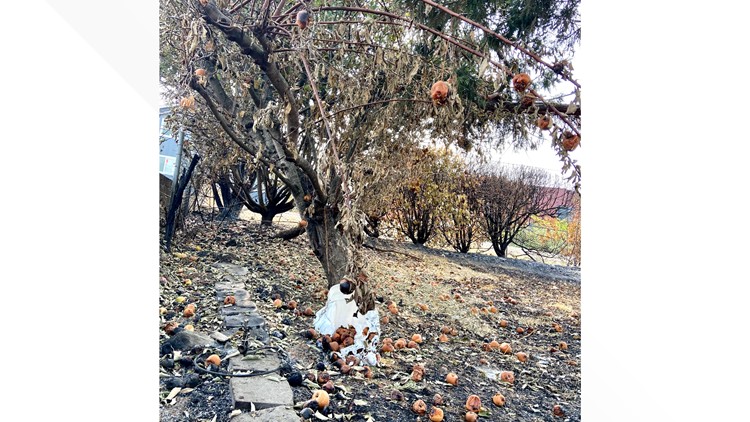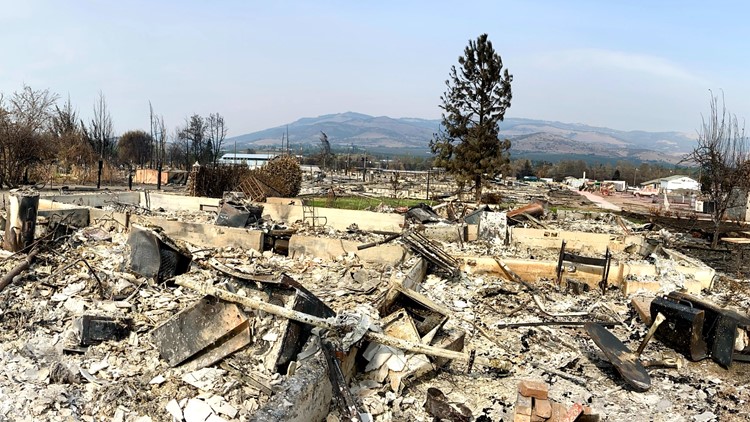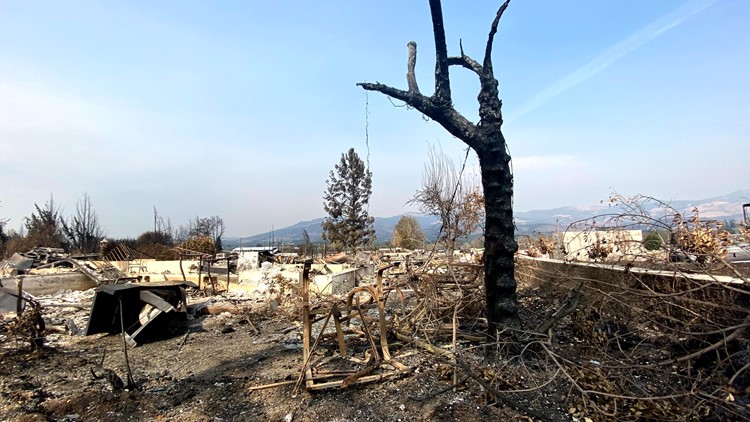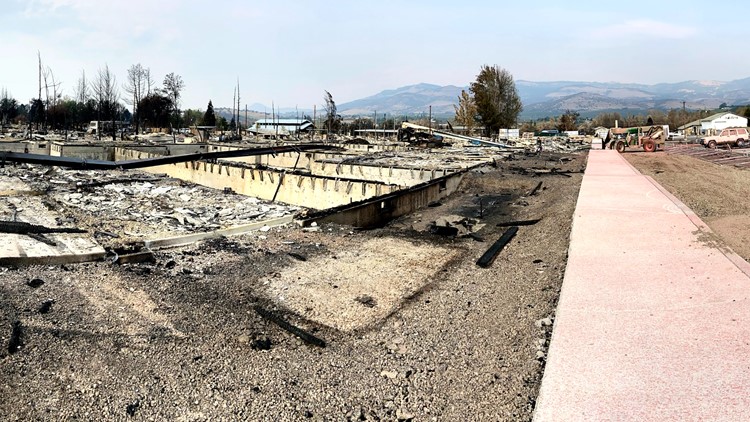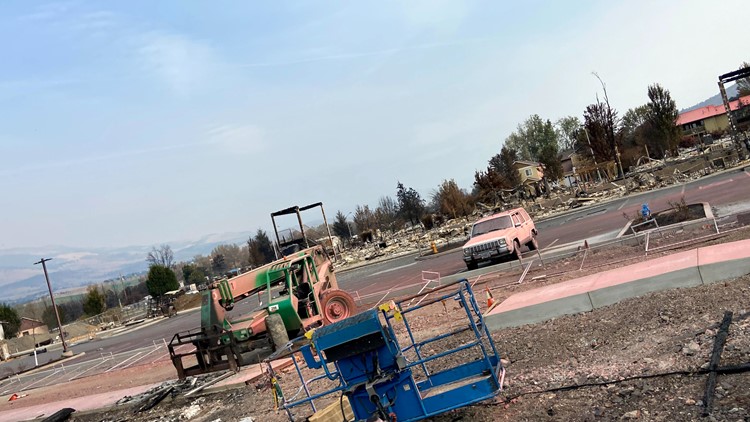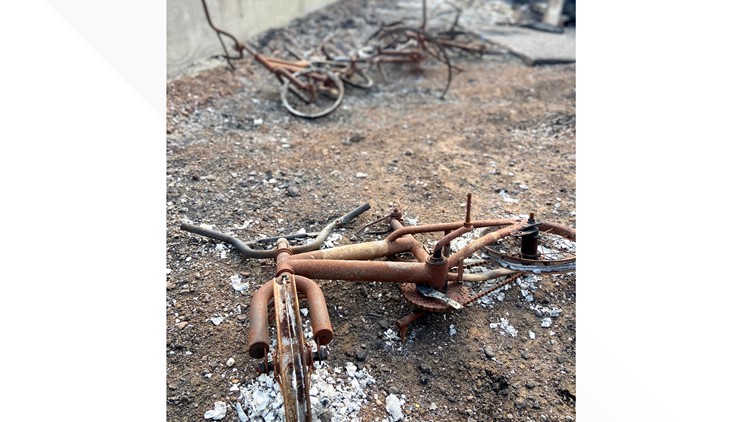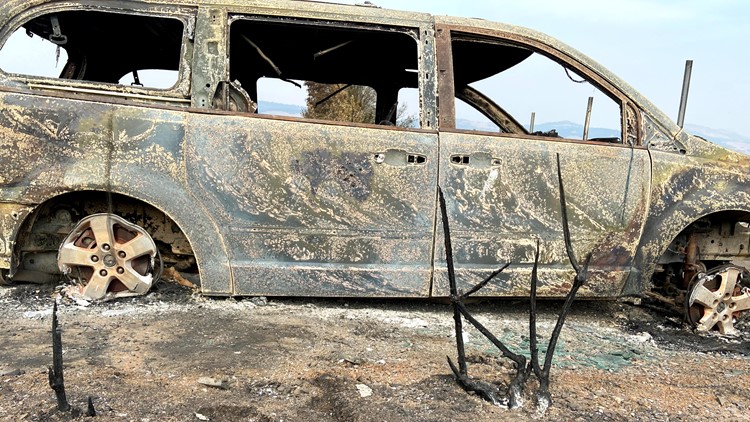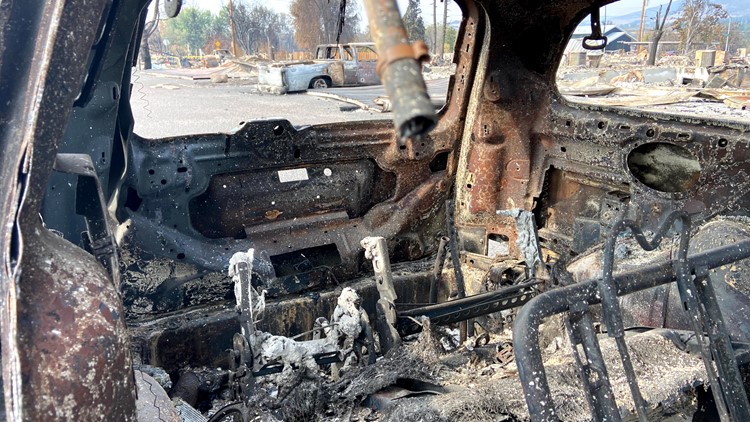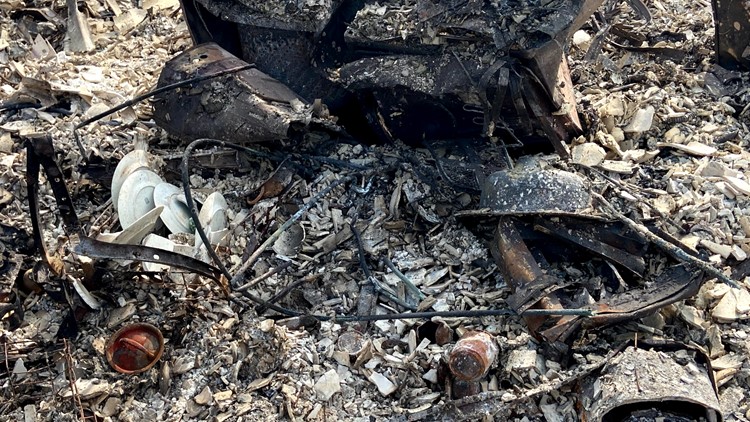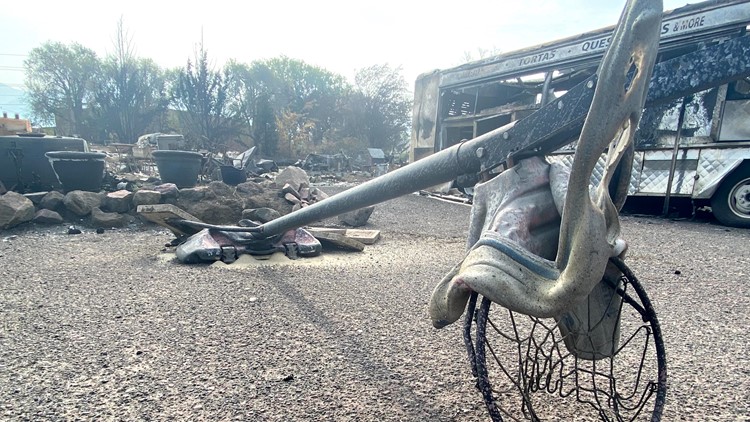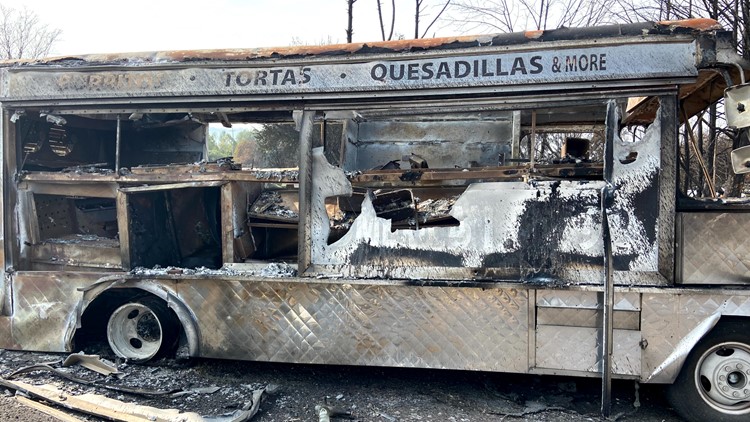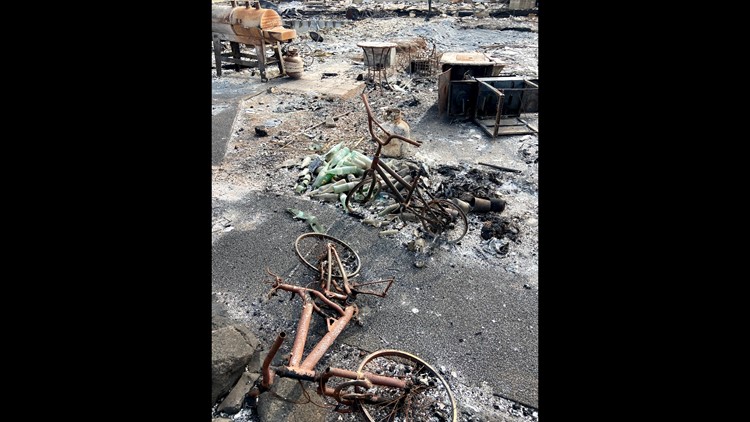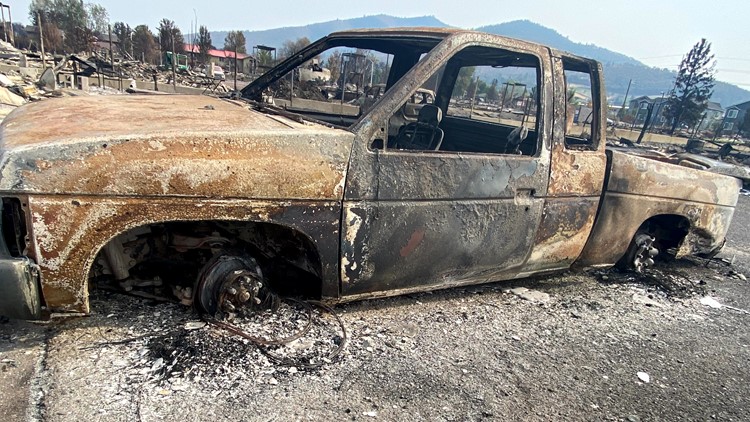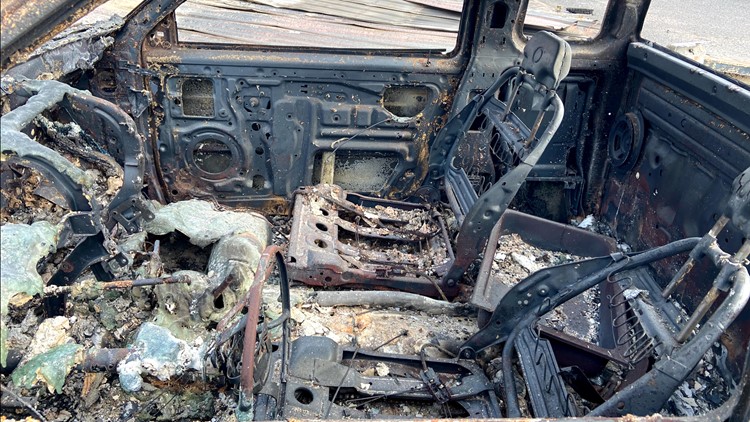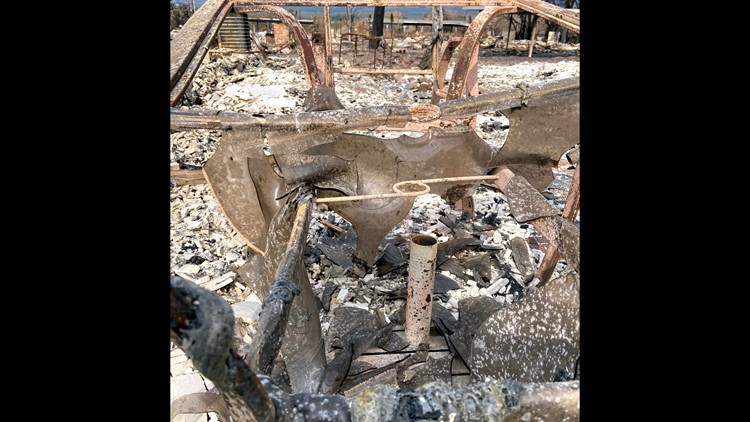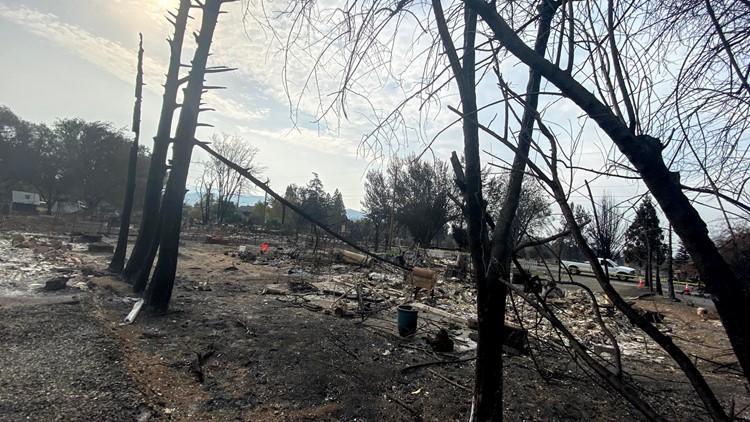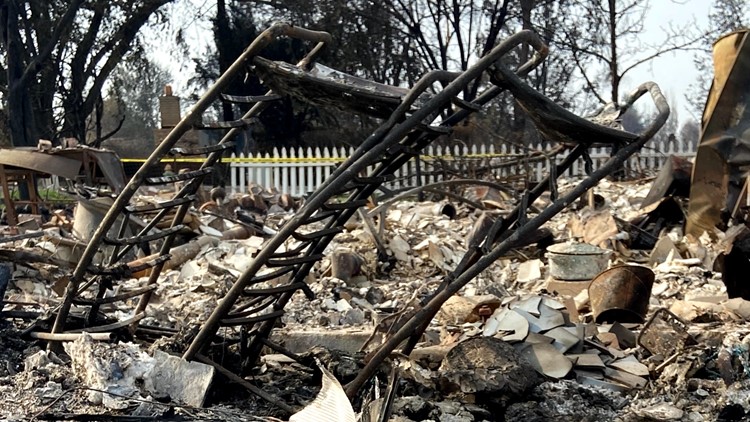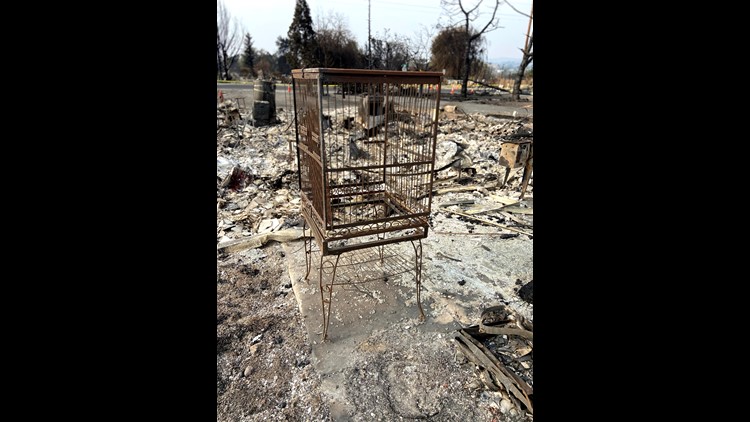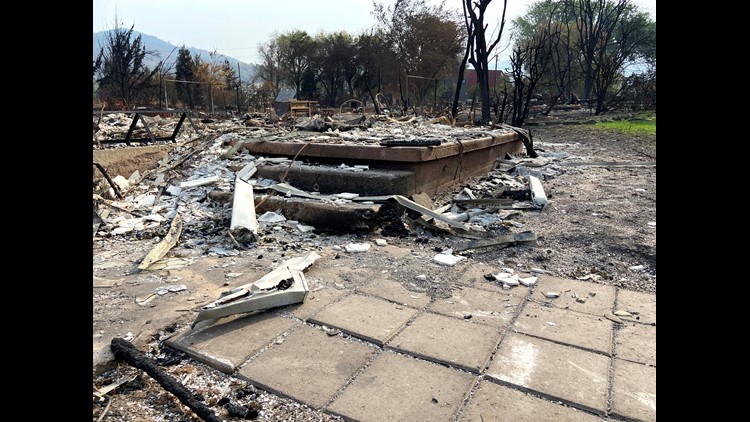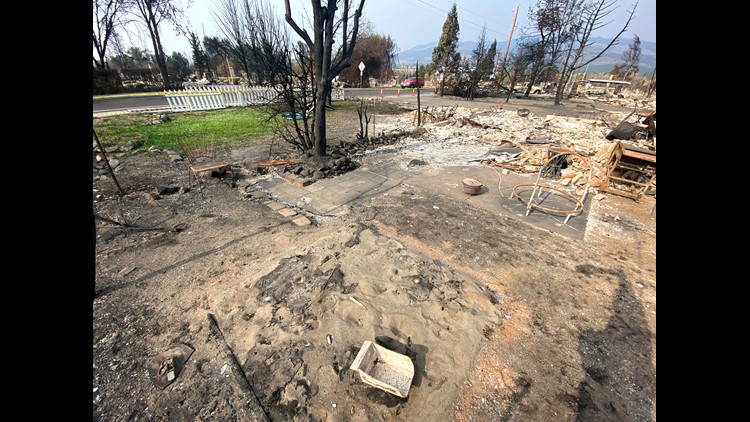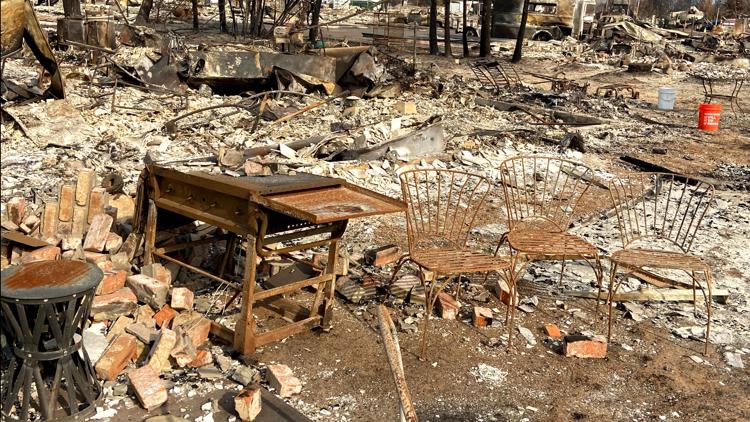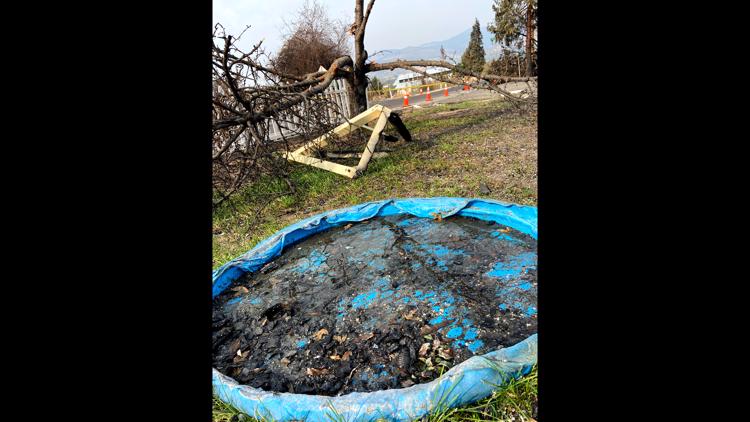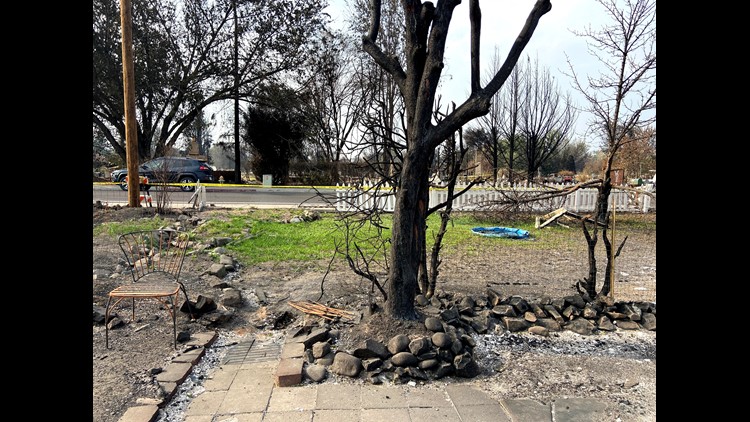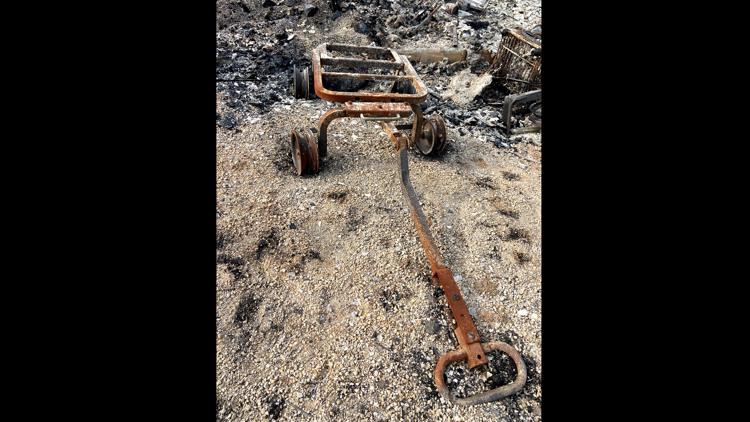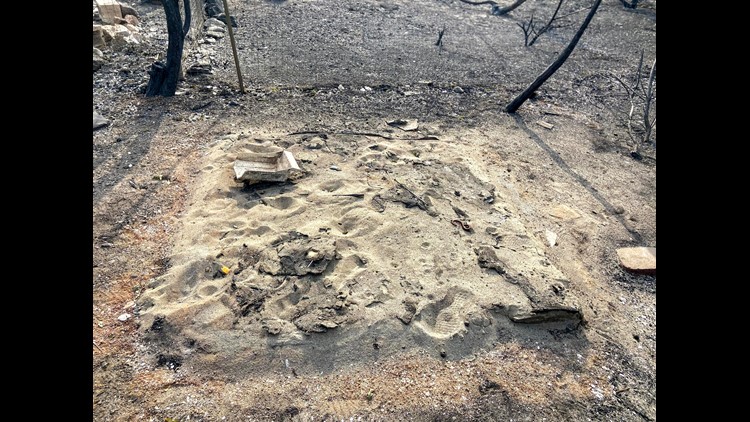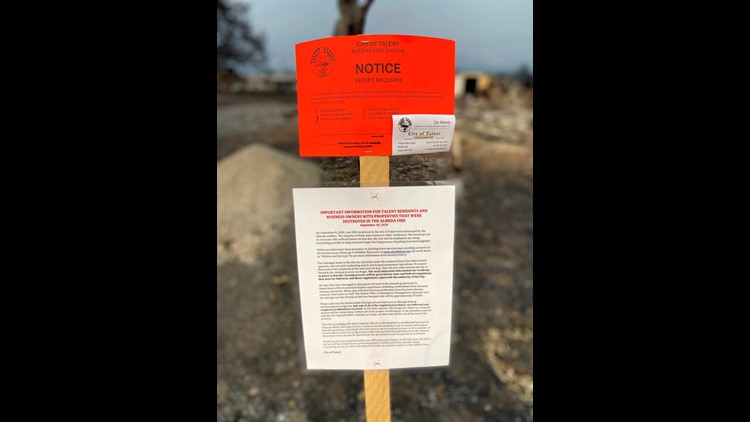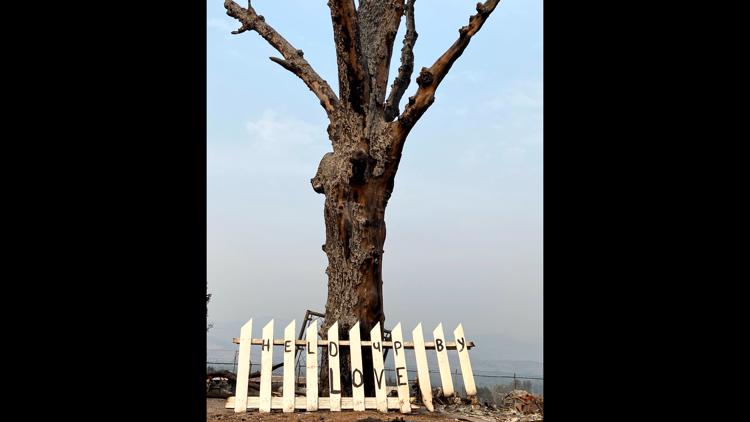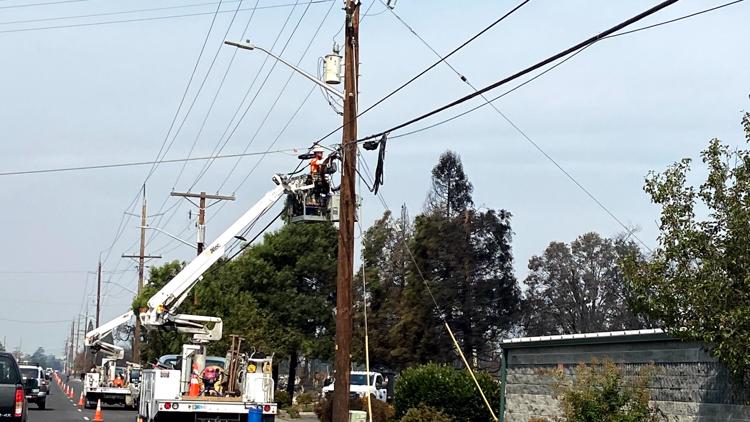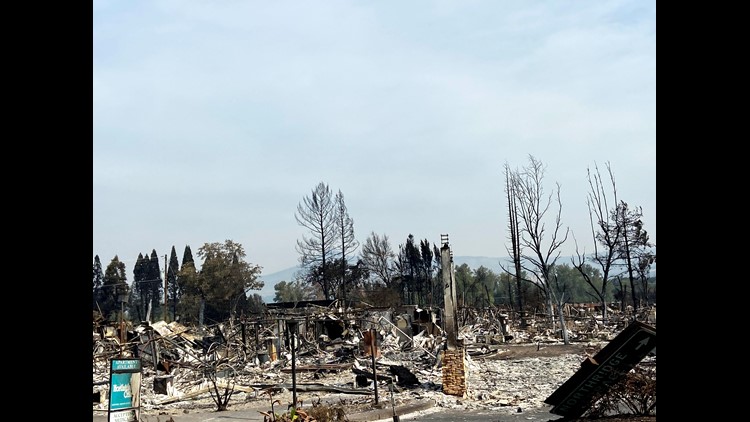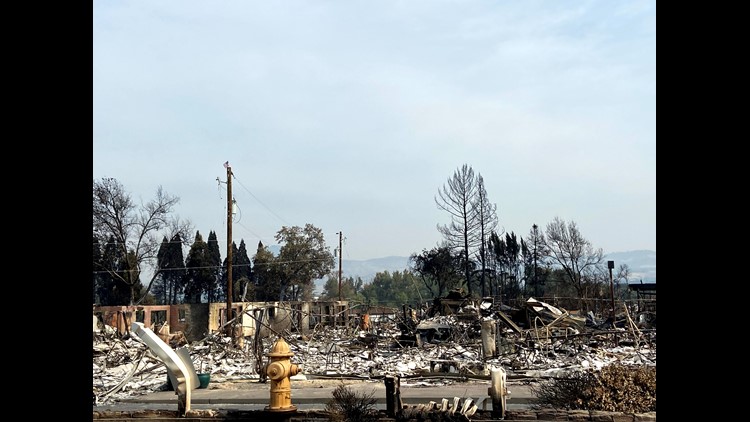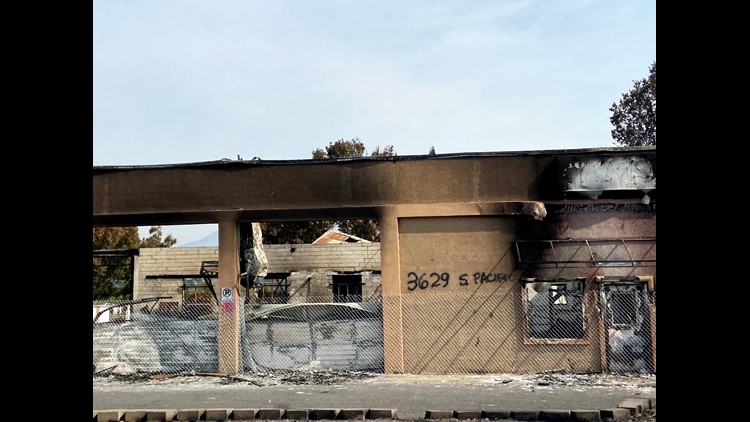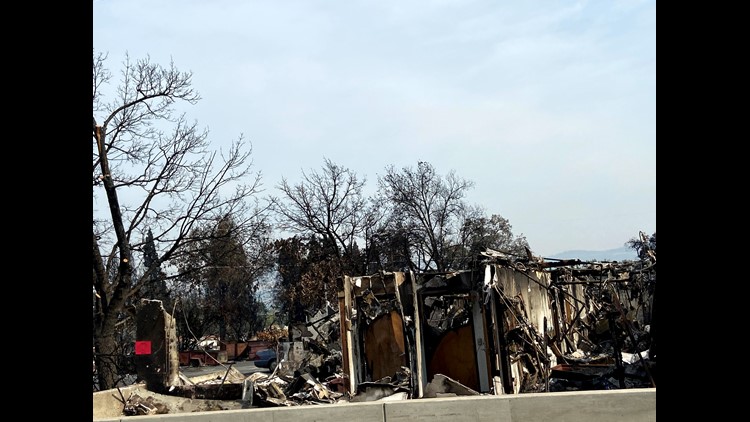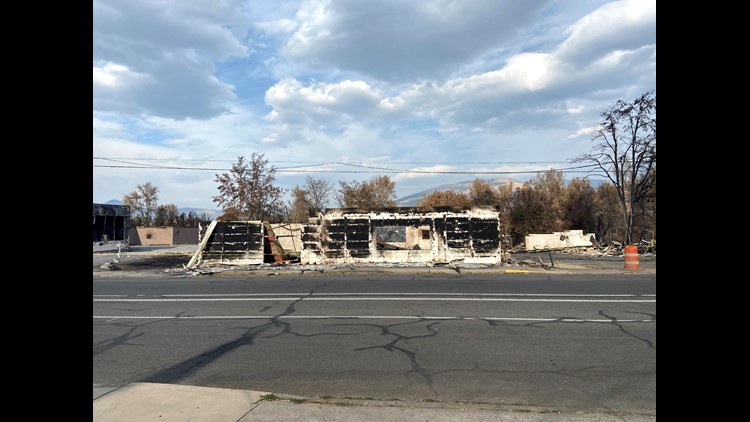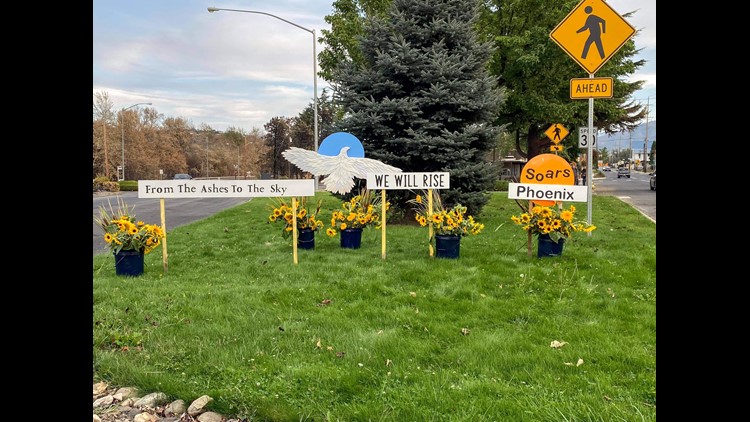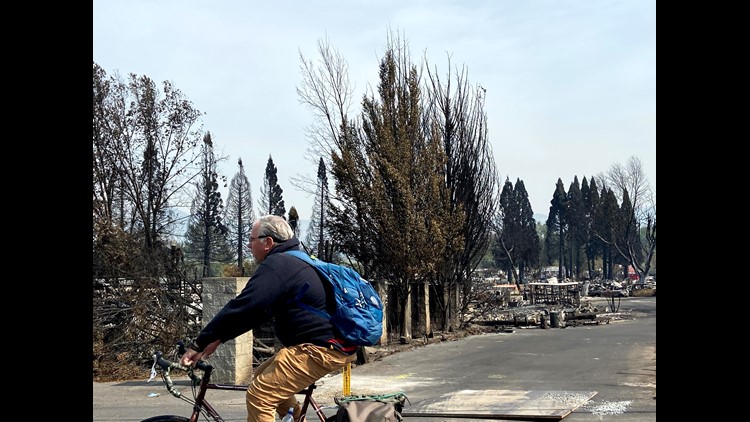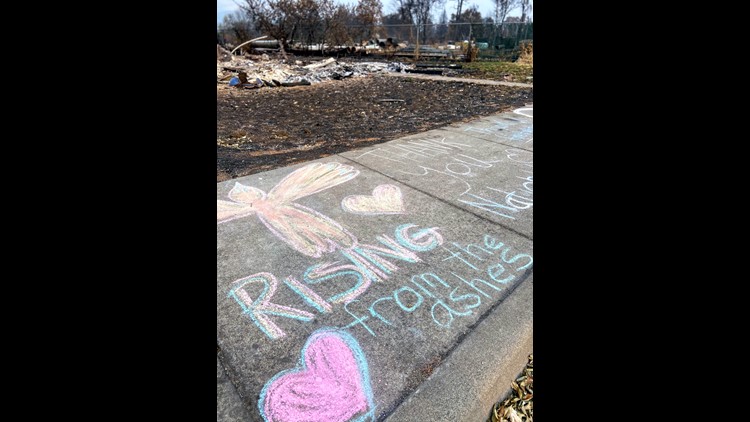Almeda Aftermath: Phoenix-Talent folks rise from ashes, rebuilding lives and towns
42,000 people were displaced and thousands remain homeless after the Almeda Fire ripped through the cities of Phoenix and Talent Sept. 8.
Kerri Brooks/KGW News
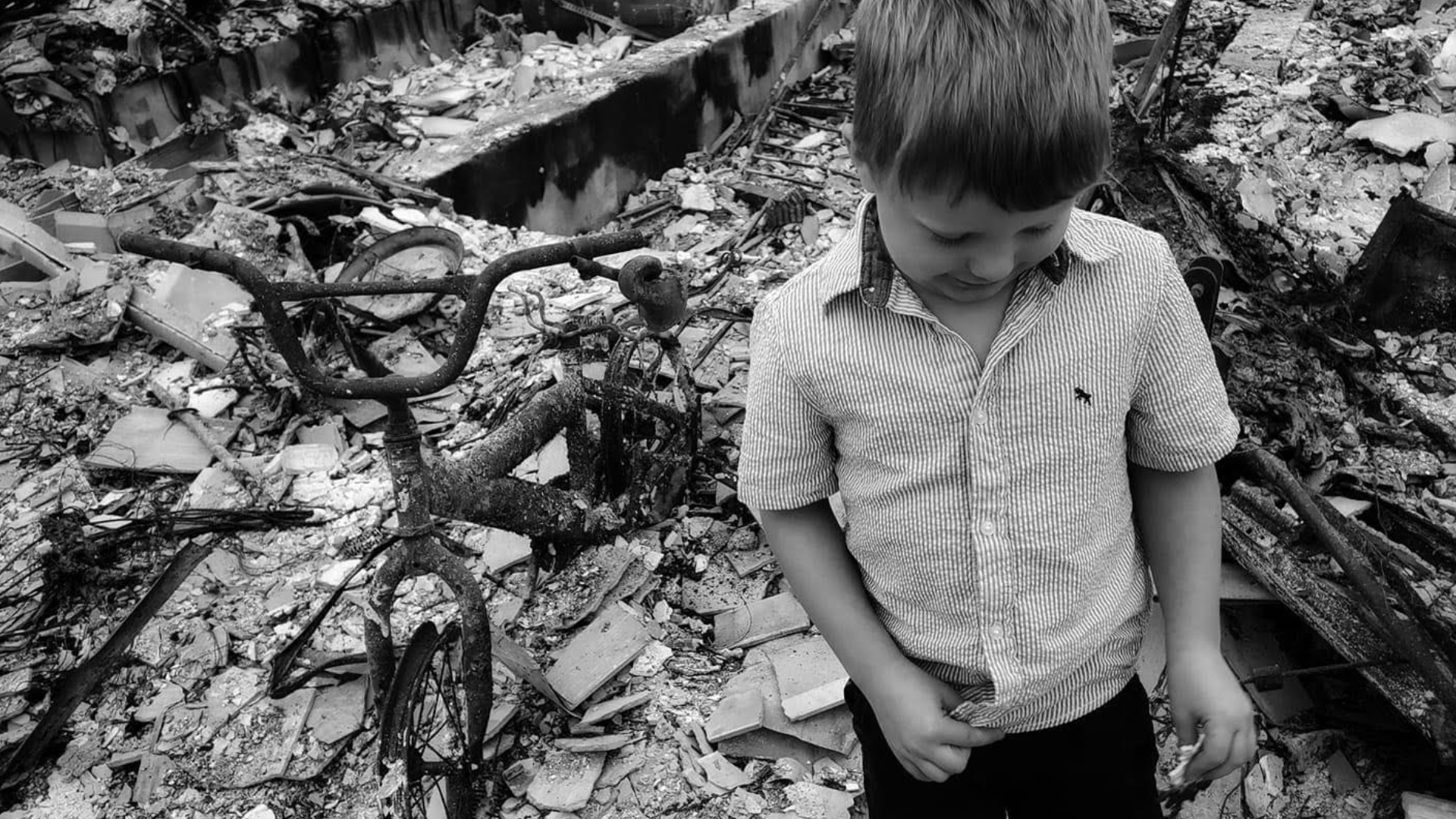
It’s been a month since historic wildfires destroyed much of two towns in the heart of the Rogue Valley in Oregon. Smoke blanketed the state miles away warning of the fires' size and power but for many, smoke was the least of their problems as the fires leveled their homes and took all their possessions from them. Nine lives were lost in total across Oregon.
In Southern Oregon, The Almeda/Glendower Crisis report details the staggering number of people affected and those still with an immediate need for housing and food.
"They were running for their lives" Subtitle here
People were desperately leaving work to get home and evacuate, causing backed up traffic and bumper-to-bumper cars for several hours, according to Kerri Brooks who was leaving from her home in Talent, Oregon.
Brooks has spent most of her life in the Rogue Valley. She works as a Special Education teacher at Phoenix Elementary and is a full-time mom to her 5-year-old son. Brooks and her son lost everything in the Sept. 8 fires.
“The police officers were going up and down our street evacuating people. So I got here with just enough time to get a few things and then get out,” Brooks said, describing the chaos the afternoon the fires broke out.
Though her school is doing distance learning at home because of the pandemic, Brooks was at her school having a meeting with teachers preparing for the start of classes.
While driving back to her home, she saw giant, thick, black smoke plumes in the sky overhead and she knew that meant structures and homes were burning now, not just grass.
Frantic, the 31-year-old mother knew she had to get her son in Medford about 30 minutes away, “It took me three hours to get out of Talent,” Brooks said.
No emergency alert, three-hour traffic Subtitle here
People in Southern Oregon wondered why there was no emergency alert issued by the Jackson County Emergency Management or from the Jackson County Sheriff’s Office.
Many people in Southern Oregon said they were relying on the police scanner for information about the fire and where it was heading next, including Brooks who downloaded a police scanner app on her phone.
“I got a notification there was a fire in Ashland, but there was no notification sent to me at all from any agency about it [the fire] being in Talent or near my house.”
Traffic was being redirected toward Phoenix, they weren’t even letting people go south, the fire was moving faster than the cars were moving. Then traffic was directed back to Ashland.
Brooks remembers driving down I-5, "I drove past about 20 semi-trucks that were just abandoned in the middle of the freeway. They were running for their lives and just left their trucks because the fire was crossing the freeway."
She saw the fire take over some of the trailer parks as she was sitting waiting in traffic. “The firefighters were doing everything they could but the winds that day were so strong and they couldn’t get enough water. We’re in a drought right now so trying to get water and supplies to put the fire out was almost impossible,” Brooks said.
She says she’s grateful it didn’t get as far as Medford because the population is much bigger there.
The hasty evacuations displaced thousands of animals as well.
The Southern Oregon Veterinary Specialty Center is taking in found cats or dogs, many with burns. It is just one of the many organizations caring for displaced animals. There is also a Facebook page where people are posting found animals and many of the burned down homes have cat food or water set out by owners in case some pets return.
“I’m a compassionate person and I feel a lot of what people are feeling. I’m gonna get emotional, it’s hard, it’s really hard and being a homeless teacher and teaching homeless kids is a really difficult position to be in and I hope that nobody ever has to deal with something like this."
Brooks found her son’s burnt up bike frame in the rubble. She didn’t want him to see where the former house stood but allowed it because she said children are grieving and processing what happened too. She considers herself lucky for having homeowner’s insurance and being able to grab her dog and some important documents she kept in a firebox.
“Doing distance learning during COVID and a pandemic and then losing our towns… I’m not the only one that has to deal with it and, yeah, I know I lost my home, but all of these other families who were displaced have to deal with it," Brooks said.
"Embers the size of softballs," in the 29-hour firefight Subtitle here
The loss and devastation have affected thousands of people’s lives, including those of the first responders.
Jesse Vermillion grew up in Southern Oregon where he works part-time as a UPS driver and is training to be a firefighter for the Jacksonville Fire Department. He said he saw the smoke while out delivering packages.
“Later in the evening I was still delivering in Talent and saw the smoke rolling over through Talent and that was when I made the decision that I need to bow out of work, come back into the Jacksonville Fire Department and go out to the fires,” Vermillion said.
He spent the next 29 hours fighting the fires in Talent, including watching his parents’ house burn down as he tried to save the rest of his home town.
Normally after a fire, there will be remnants of a building or sticks standing, “You go through and see stuff now and it’s just foundations left. You might see a safe or an appliance melted down that kinda describes how hot it got,” Vermillion said
In an incident this large, firefighters tried to save what structures they could.
Homes were burning at a fast rate because of high winds blowing embers. “You’d see one be fully involved and then not even 30 seconds later it felt like you’d see the next house fully involved and then the next and the next,” Vermillion said.

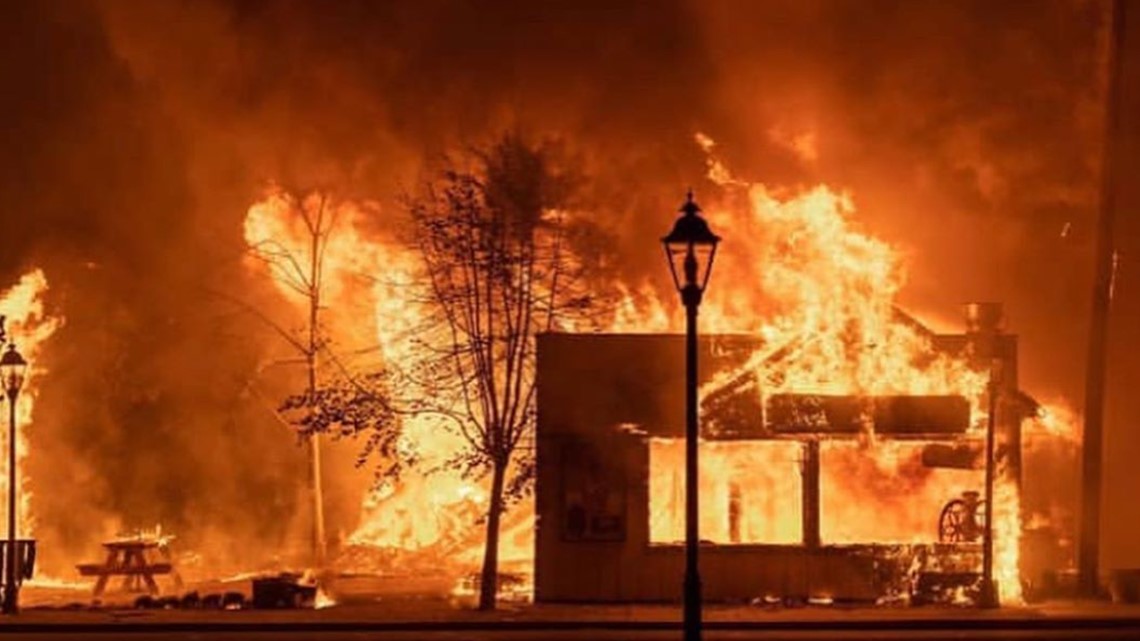
“The winds were so strong it was blowing embers the size of softballs over my head about 5-feet high and hitting on trees.”
Vermillion says embers would hit trees and buildings then erupt in flames. Firefighters made their way through neighborhoods surrounded by 10-foot walls of flames as trees exploded, along with gas containers, compressed air tanks, guns and stored munitions blowing up in houses around them.
“It burned very hot and moved very fast,” Vermillion said.
Downed power lines, cars, plastics, metals, paints and insulation from houses melted forming a noxious chemical mixture in the air and a cloud of dark, dank smoke, smelling of plastic and polymers.
Vermillion has only been a firefighter on the job for nine months. He slept one hour fighting the blaze in Talent through the night and well into the morning.
In Phoenix, the fire was just as bad, consuming entire buildings, houses, cars, mobile homes and anything else in its path. Firefighters from both Jackson Fire District 5 and Fire District 3, along with other firefighters from all over the valley were attacking multiple fires burning in Talent, Phoenix, Ashland and parts of Medford along the Interstate 5 corridor and Highway 99.
Firefighters had a hard time getting a handle on the fires along the freeway because as soon as they started wetting down one fire Vermillion said another fire would erupt 200 yards away from traveling embers.
Fire resources were maxed out already with wildfires throughout the state. This, combined with dry temperatures, droughts and fighting fires all day made one hydrant run out of water. Fire engines had to scramble and rotate the water supply from another fire engine and bring it back to crews.
Worried the fires were going to burn down Phoenix High School, firefighters stationed there overnight protecting the school.
Photos: Almeda Fire aftermath
50% of families at schools displaced Subtitle here
Brent Barry, Superintendent Phoenix-Talent School District, said it was an emotional, sleepless night for him as it was for many other Southern Oregonians.
Barry said he drove through what was left of Phoenix, crying. He went up to a firefighter and asked about the high school. Barry said an exhausted soot-covered firefighter with a tear in his eye quietly muttered: “We saved it.”
The first day of school was on Sept. 8 for most kids in the Rogue Valley. Classes were suspended for about a week before resuming to try and provide kids, teachers and families affected a place to meet up online to learn, share in their grief and have a sense of normalcy.
Other schools have offered Wi-Fi areas for kids and the Phoenix-Talent district. Chrome books were distributed so students could continue distance learning.
Even though many students and teachers are homeless following the fires, Barry said 80% of kids logged on for school which he says proves how much these kids want to connect with each other and their community. There are counseling services set-up throughout the district for teachers, students and families.
By some estimates, nearly 50% of families in the Phoenix-Talent School District have lost their homes, including teachers.
"Fire came barrelling behind us" Subtitle here
The Smidt sisters live and work in LA now, but Nina was visiting when she suddenly had to help her mom pack up their home in Phoenix and evacuate.
“That evening I followed the very long road of slowly moving cars while the black smoke of the Almeda Fire came barreling behind us," she said.
“I’ve never seen anything like it. It was terrifying. People were outside in their driveways waiting for rides or looking around panicked while passing drivers yelled at them to “GO." All I could think about was my mom getting safely to my brothers from the backroads of Ashland to White City. And the house -- I was so scared for our family home. And for all the people who hadn’t left yet. And the animals.”
They spent the night with seven cats, three dogs, six adults and two kids in the house.
"I didn’t sleep that night. Not a wink. I listened to the police scanner and joined every Facebook fire watch group I could find. It seems that nobody in the valley slept that night. We were all on the internet, on edge, scared, waiting to know what the morning would reveal," Smidt said.
Barry says the Latinx community was "disproportionately affected" by the fires. Many of those affected were part of the area’s most vulnerable residents, low-income families, migrant farmworkers and senior citizens who lived in low-cost mobile home parks that burned down. Many people didn’t have homeowner’s insurance or couldn’t afford it and left with only the clothes on their backs.
Fires ravaged other areas of the state as well, but the damage in Jackson County was overwhelming.
Along with homes completely leveled; the bedrock of two communities has been completely dismantled. Businesses, restaurants, a fire department, bookstore, bank, barbershop and a church also burnt down.
Neighbors now share a knowing glance that there are no words to describe how these two towns and thousands of lives have been devastated by this disaster.
Relief from all sides, still not enough Subtitle here
Gov. Kate Brown and Sen. Ron Wyden toured some of the worst-hit areas of the deadly Oregon wildfires, including Phoenix and Talent. The Red Cross has a station at the Jackson County Fairgrounds where some fire evacuees are staying. The area in Jackson County has been declared a disaster which will allow the Federal Emergency Management Agency to remove hazardous debris and help ease the financial burden of cleaning up.
The Phoenix-Talent School District is accepting donations through its website and has partnered with a nonprofit Rogue Retreat. They are providing donated RVs as transitional housing for families in need. Multiple GoFundMe accounts benefiting families, elderly, adults and children displaced have been made as well.

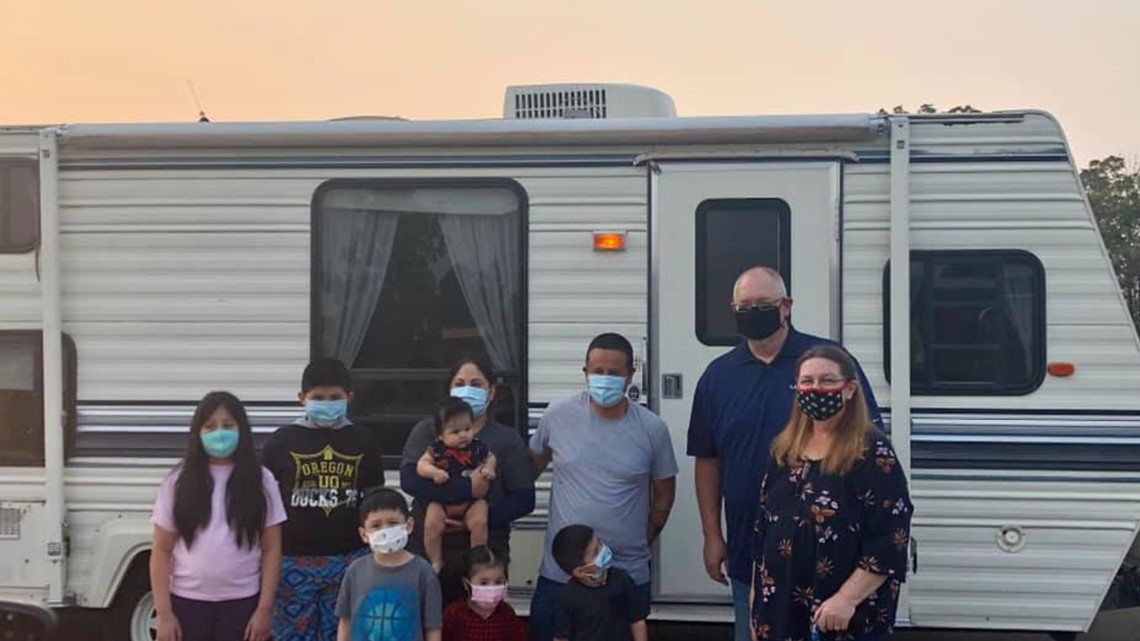
The Smidt sisters helped raise over $18,000 in fire relief aid. Nina, co-founder of the nonprofit Earth Angels, along with Maia, gathered donations from L.A. with a 26-foot truck and handed out essential items to adults and kids displaced by the fires.
Rogue Food Unites is partnering up with restaurants and farms offering free regional support through a food delivery service feeding anyone displaced by the fires breakfast, lunch and dinner daily. There's also a fire victim relief event donating clothes and shoes Oct. 13.
"We need something better than sleeping in cars, tents and shelters.” Subtitle here
Four weeks after the fires, thousands are still without homes. Some are staying in hotels, at the fairgrounds, or sleeping in cars and tents on the streets.
The Red Cross is providing some vouchers for hotels, but people displaced or homeless want better solutions for more permanent housing.
City officials, mayors, along with contractors in the community are taking stock of the damage, determining emergency needs and looking for sites where temporary housing could go.
The founder of KDA Homes, Laz Ayala, said, “We need to give people a place to call home for now while we develop permanent solutions. We need something better than sleeping in cars, tents and shelters.”
Driving through destruction there are signs of hope with the words "Talent strong" or "We’re all in this together," along with thanking firefighters and first responders. In the days following the fires, neighbors were putting bottles of water and cans of food on their fence for people to take.
Brooks said, "Talent was strong before but this event that has devastated so many lives has really made Talent even stronger. People keep saying like a phoenix rising from the ashes, that’s literally what we're gonna do is we’re gonna rise from the ashes."
As Southern Oregon begins the years-long process of rebuilding their communities, there is a common theme of hope among folks - that the resilient spirit of Talent and Phoenix will rise again stronger than before.


